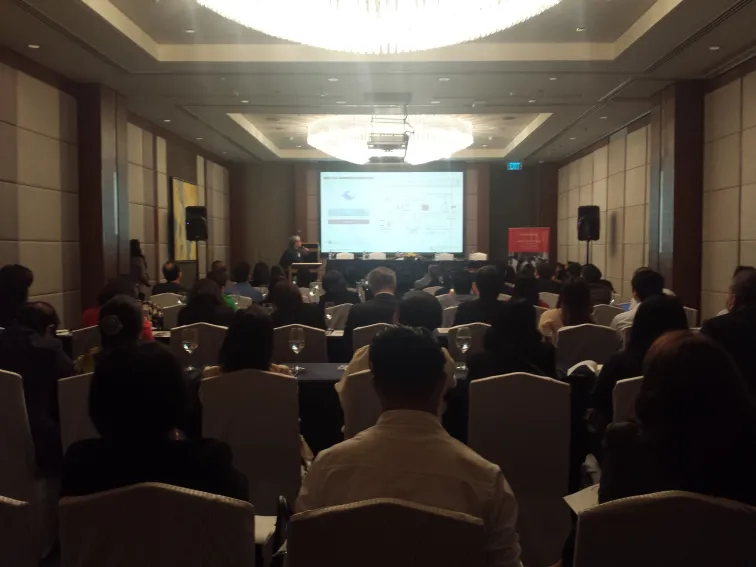
Will the Philippines finally address its need for healthcare data optimisation?
Healthcare IT was one of the many hot topics discussed at the inaugural Healthcare Asia Forum 2016.
The problem with healthcare data in the Philippines, as well as in the other parts of the Southeast Asian region, is that information is often scattered all over the place in different formats, making it difficult for a myriad of organisations and companies to interpret and utilise them properly. Data optimisation was only one of the pressing industry topics discussed in the Manila leg of the first-ever Healthcare Asia Forum 2016.
“There is a need for data harmonisation in the Philippines, which is currently addressed by the Philippine Health Data Information Exchange. [The problem is that] different formats of data do not match, and the recorded data is very difficult to assess online,” said Maria Minerva P. Calimag, MD, president of the Philippine Medical Association.
While Dr. Calimag noted the many merits of Health IT, such as automation, efficiency, audit, patient safety, and research, she noted that there are still many roadblocks before it reaches its full potential in the Philippines. Among the problems she noted were lack of capacity among healthcare and IT professionals, lack of a human touch, and additional expense infrastructure investments.
Healthcare IT in the Philippines was also a main anchor in a talk by Allen Bacallan, Vice President and Chief Information Officer at Cardinal Santos Medical Center (CSMC), where he discussed home healthcare in Asia. Allen Bacallan used his own home healthcare experience in the CSMC as a launch pad in the discussion. Bacallan noted that while home healthcare is not yet getting good traction in the commercial scale the attempts nonetheless are helping healthcare practitioners discover particular elements of Asian behavior which could be used in future forays.
Meanwhile, another hot topic discussed in the forum was the investment side of healthcare, with financing being a weighty topic in the industry. According to Larry Tenorio, FVP Financial Director and Head of the Finance Directorate at Manila Doctors Hospital, a lot of incentives are being done to sweeten deals for healthcare investors, such as fresh capital, income tax holidays, and tax incentives on the importation of medical equipment as well as infrastructures. He was also joined in a panel discussion by Elizabeth Dantes, Vice President and Chief Financial Officer of the Management Committee at Cardinal Santos Medical Center.
Dantes added that if the Philippines wants to compete with other ASEAN countries in terms of healthcare, then it must first improve its infrastructure. Additionally, Jaime Almora, MD, Vice President for Luzon at the Philippine Hospital Association was originally a member of the panel but he offers his apologies as he has to pass due to an emergency.
To complement the financing in Asian Healthcare, the final panel discussion centered on the topic of the cost conundrum in Asian Healthcare, which featured a diversified panel consisting of Ma. Luisa Aquino, MD, Director of Gat Andres Bonifacio Memorial Medical Center, Arturo de la Peña, MD, SVP and Head for Medical Practice at St. Luke’s Medical Center Global City, Leo Cubillan, MD. Chairman, Department of Pay Patients Hospital at Philippine General Hospital, and Teri-Louise Hitosis, Country Marketing Manager at Ortho Clinical Diagnostics.
Dr. Arturo de la Peña also shared how St. Luke’s Medical Center Global City invests heavily on training its healthcare professionals, which ensures a high quality of care. This in turn, will turn up patient volume and lead to higher income, which will help alleviate rising staffing costs.
The forum's Manila leg was attended by over 60 key people and the panel discussions were moderated by Healthcare Asia editor Tim Charlton. It kicks off the 5-city event which will bring together the industry's key thought leaders in 5 key cities in Asia -- Manila, Kuala Lumpur, Jakarta, Singapore and Bangkok. Find out more about the event here.


















 Advertise
Advertise


